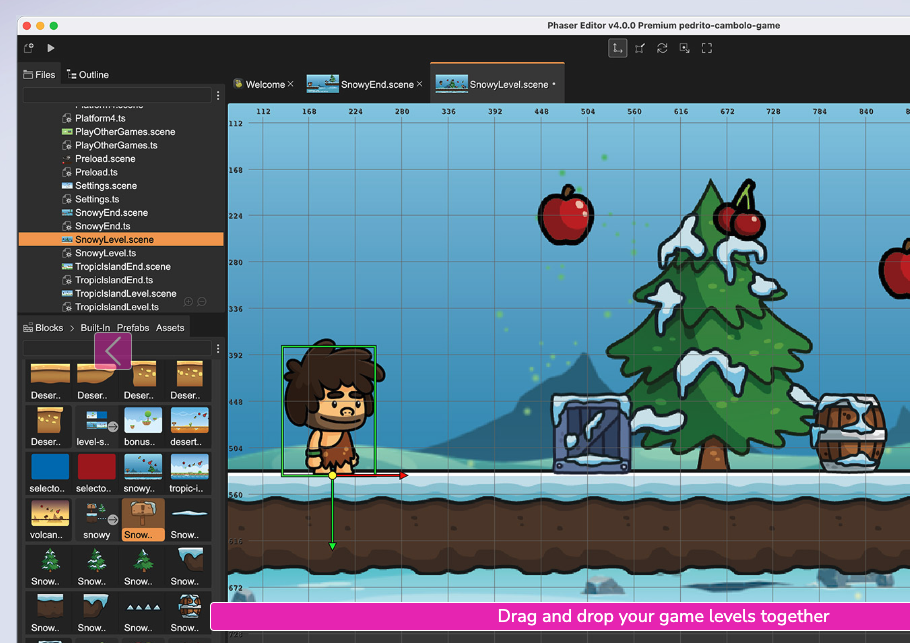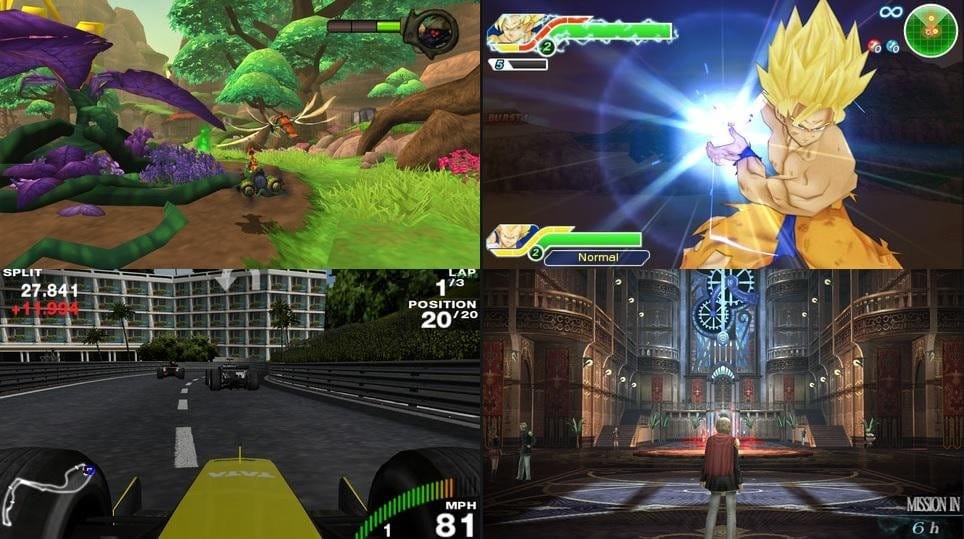19 Open-Source Game Engines to Kickstart Mobile Game Development (Android & iOS)
Table of Content
A friend asked me to put together a list of open-source game engines for mobile (Android) to help his teenage son explore game development. They wanted to try a few engines and pick the best one to learn with, and that’s how the idea for this list came about!
Let me tell you something exciting - there's never been a better time to jump into mobile game development. Remember when making games for phones seemed like rocket science? Those days are long gone!
Whether you're dreaming up the next addictive puzzle game while sipping your morning coffee, or you're already sketching out that epic RPG world that's been living in your head - trust me, there's a perfect game engine out there waiting for you.
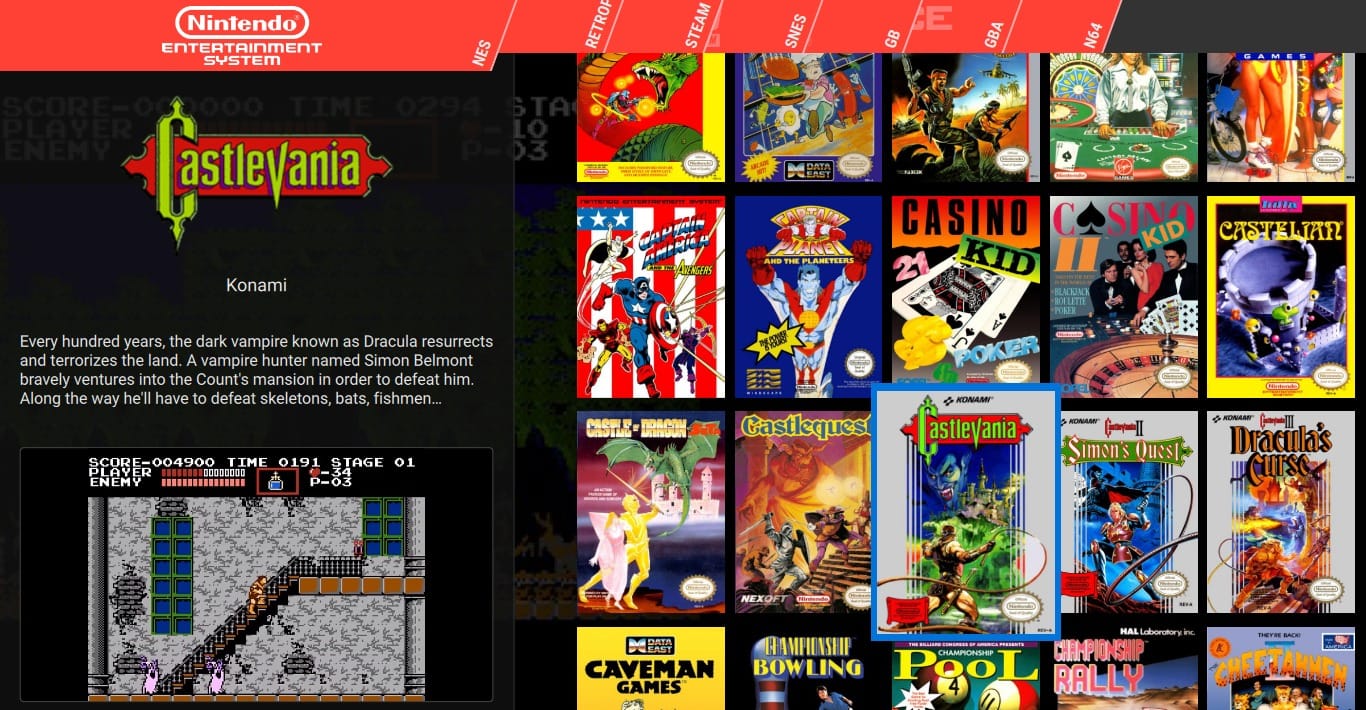
I've spent countless hours diving deep into the world of mobile game development, and I'm stoked to share this journey through 19 incredible game engines that'll help bring your vision to life on both Android and iOS.
From friendly tools that'll welcome you with open arms if you're just starting out, to powerhouse engines that'll give veteran devs all the muscle they need - we're covering all the bases.

The best part? Each engine has its own personality and superpowers. It's kind of like choosing your perfect adventure companion - some are quick and nimble, others are strong and versatile, but they're all ready to help you craft something amazing.
Ready to find your perfect match and start building something awesome? Let's dive in and explore these game-changing tools together! 🚀
Would you like me to continue with the detailed breakdown of the engines?
1- Torque2D
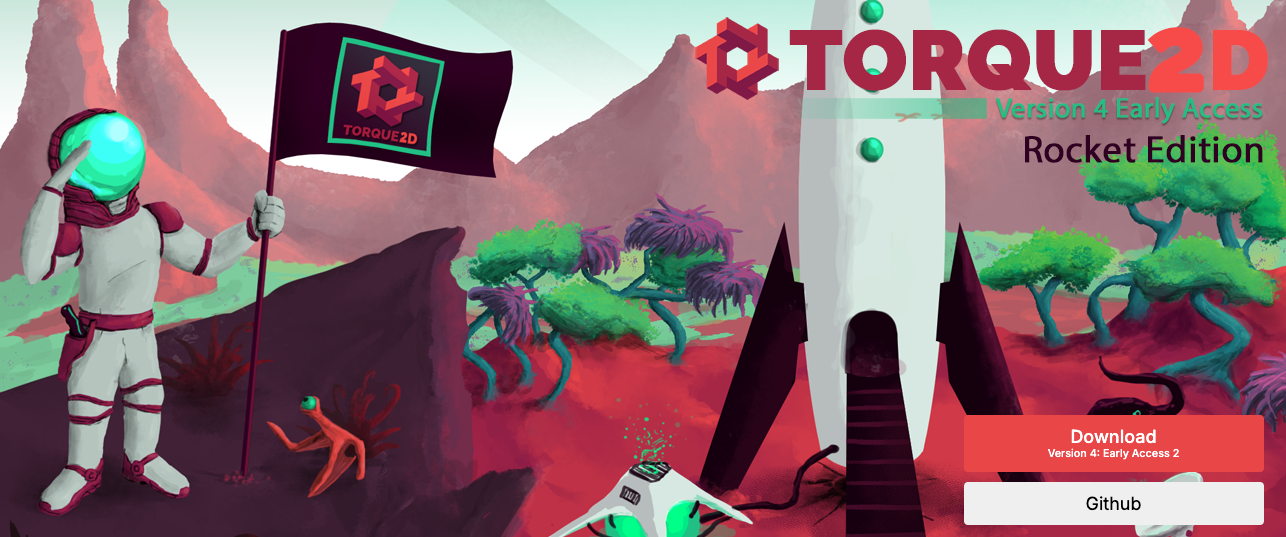
Torque2D is a completely free, open-source, C++ 2D game engine built on proven torque technology. It can build mobile games for iOS and Android.
Features
- Powerful Asset Management System
- Flexible Module System
- 2D Physics using Box2D
- Re-imagined User Interface Classes
- Fast Batch Rendering System
- Spectacular Particle Effects
- Distance-based Audio Using OpenAL
- Easy-to-read Documentation
- Simple 2D Lighting
- Skeleton and Joints System
- Obect-to-object Messaging System
- Supports Multiple Platforms: Windows, MacOs, Linux, iOS, and Android
- Tilemap Support Using Composit Sprites
- Easy-to-use Scripting
- Advanced Camera Controls
- Static Sprites, Animated Sprites, Text Sprites, and More
- Undying Community Support
2- Godot
Godot is an amazing open-source game engine for building 3D and 2D games for desktop, mobile and the web.
You can download the Godot engine and editor for Linux, Windows, macOS (Intel/ Apple Silicon) and Web Editor.
Features
- Cross-Platform Export – Easily deploy your projects on multiple platforms, including Windows, macOS, Linux, Android, iOS, and web (HTML5).
- Visual Scripting – Supports both GDScript and visual scripting, making it accessible to developers with varying coding skills.
- 2D and 3D Game Development – Provides tools for creating both 2D and 3D games, with optimized performance for both environments.
- Open-Source and Free – Completely free under the MIT license, offering full access to the source code.
- Node-Based Architecture – Uses a flexible node system, making it easy to structure and manage complex projects.
- Built-In Animation Tools – Offers robust animation features, including tweening and bone-based skeletal animation.
- Customizable Shaders – Includes an easy-to-use shader language for creating custom graphics effects.
- Lightweight and Efficient – Minimal memory footprint and optimized for fast development workflows.
- Asset Library Integration – Direct access to a library of free, community-contributed assets and plugins.
- Active Community and Documentation – Backed by an active community with extensive documentation, tutorials, and support resources.
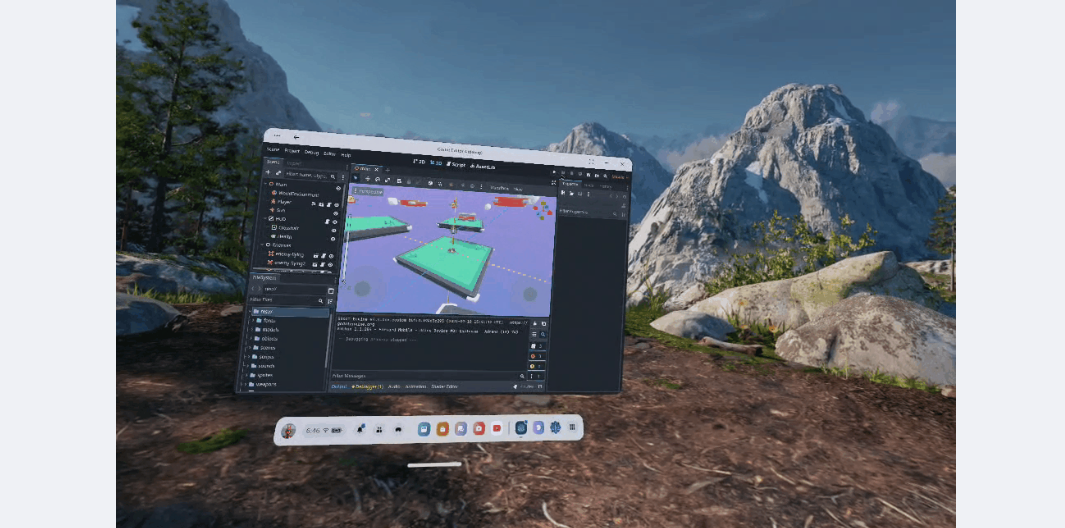
3- Turbulenz Engine
Turbulenz is an HTML5 game engine and server-side APIs available in JavaScript and TypeScript for building and distributing 2D and 3D games that run on platforms that support HTML5 features such as modern browsers without the need for plugins.
4- Cocos2d-x
Cocos2d-x is a multi-platform framework for building 2d games, interactive books, demos and other graphical applications. It is based on cocos2d-iphone, but instead of using Objective-C, it uses C++. It works on iOS, Android, macOS, Windows and Linux.
5- Defold
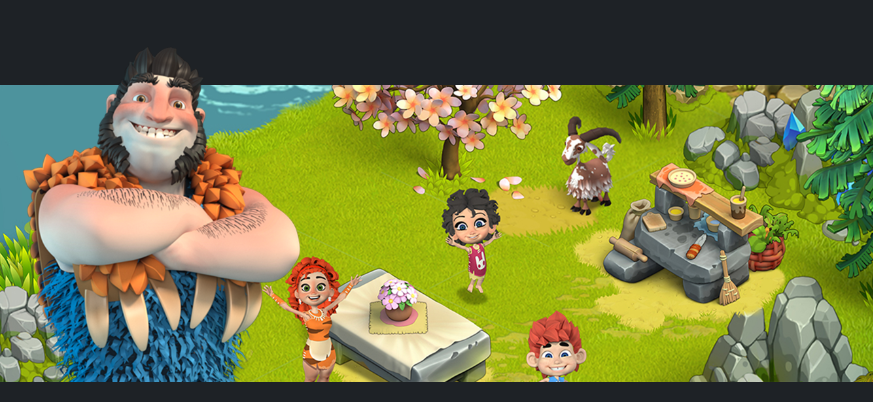
Defold is a fast, open-source game engine ideal for 2D and 3D game development. It offers cross-platform export, enabling developers to build once and deploy on Windows, macOS, Linux, Android, iOS, and HTML5.
Defold’s lightweight design ensures efficient memory usage and quick load times, perfect for performance-focused projects. With built-in visual scripting, Lua support, and an active community, it provides a powerful platform for both indie developers and studios, offering streamlined workflows with minimal overhead.
Unlike Godot, and some other platforms, Defold can create games for PlayStation 4 and 5, Nintendo Switch, and Facebook Web games.
6- MonoGame
MonoGame is a simple and powerful .NET framework for creating games for desktop PCs, video game consoles, and mobile devices using the C# programming language.
It has been successfully used to create games such as Streets of Rage 4, Carrion, Celeste, Stardew Valley, and many others.
MonoGame works for Windows, Linux, macOS, Android, iOS devices, and game consoles a XBOX one, PlayStation 4/ 5, and Nintendo Switch.
7- Urho3D
Urho3D is a free lightweight, cross-platform 2D and 3D game engine.
8- PixiJS
PixiJS is a powerful 2D rendering library that brings hardware-accelerated graphics to life across all devices, without requiring in-depth knowledge of WebGL. It offers WebGPU support with fallback to WebGL, ensuring seamless performance and compatibility.
Designed for building interactive content, games, and cross-platform applications, PixiJS simplifies the process of crafting visually stunning experiences.
PixiJS is ideal for graphics-rich websites and HTML5 games, PixiJS handles browser and device inconsistencies so developers can focus on creativity.
Its fast rendering engine ensures smooth performance, making it a go-to tool for polished, interactive projects.
Features
- WebGL renderer (with automatic smart batching, allowing for REALLY fast performance)
- WebGPU renderer (new to the latest browsers!)
- Canvas renderer (Fastest in town!)
- Full scene graph
- Super easy to use API (similar to the flash display list API)
- Support for texture atlases
- Asset loader / sprite sheet loader
- Auto-detect which renderer should be used
- Full Mouse and Multi-touch Interaction
- Text
- BitmapFont text
- Multiline Text
- Render Texture
- Primitive Drawing
- Masking
- Filters
9- GDevelop
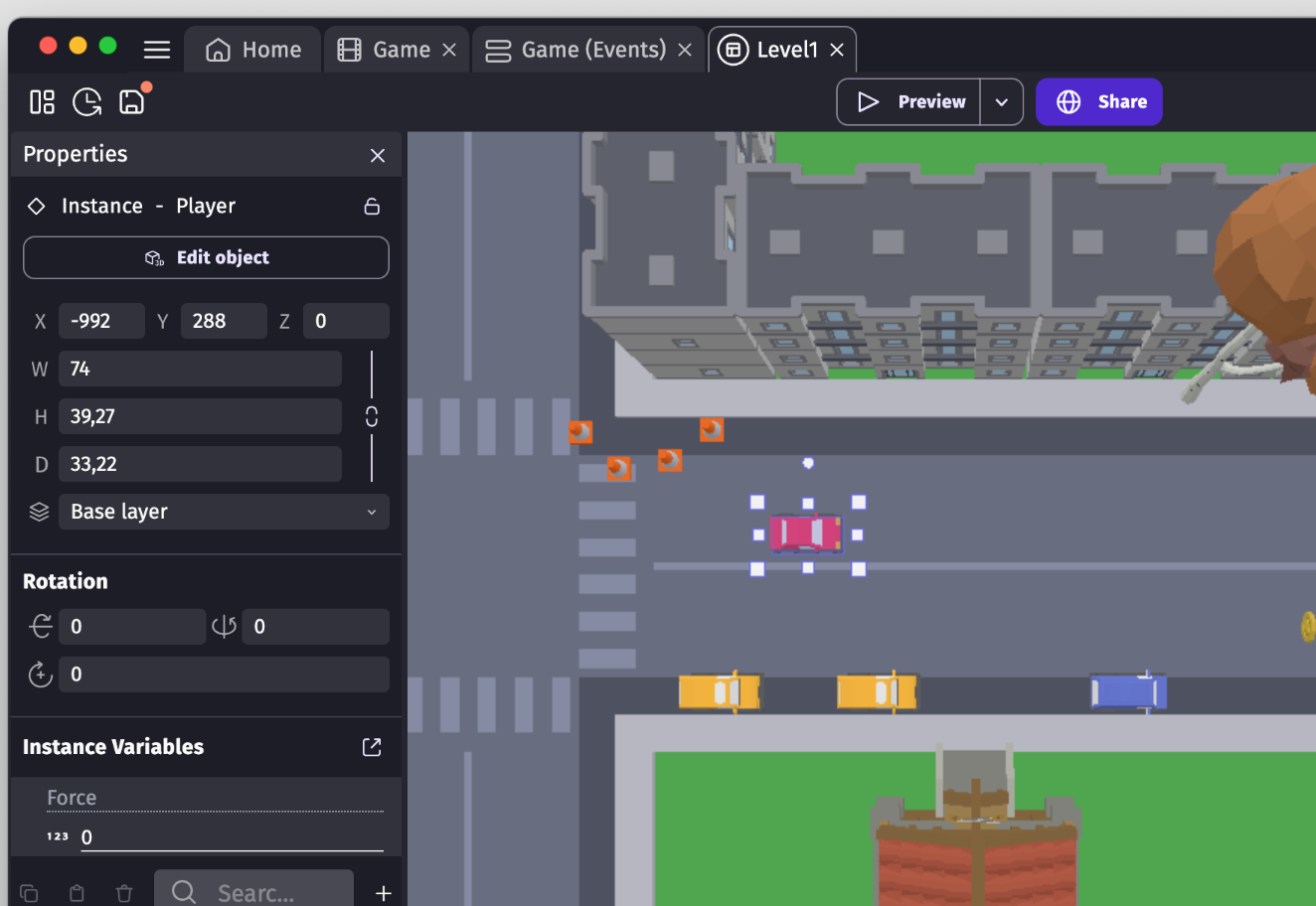
GDevelop is a full-featured, no-code, open-source game development software. You can build 2D, 3D and multiplayer games for mobile (iOS, Android), desktop and the web.
GDevelop is fast and easy to use: the game logic is built up using an intuitive and powerful event-based system and reusable behaviors.

10- Mojoc
Mojoc is an open-source, cross-platform, pure C game engine. It is based on OpenGLES3 and written in C99. It currently works on IOS and Android, but can easily be extended to other platforms, and will support more platforms in the future.
11- Phaser
Phaser is a fast, free, and fun open source HTML5 game framework that offers WebGL and Canvas rendering across desktop and mobile web browsers and has been actively developed for over 10 years.
Games can be built for the web, or as YouTube Playables, Discord Activies, Twitch Overlays or compiled to iOS, Android, Steam and native apps using 3rd party tools. You can use JavaScript or TypeScript for development. P
Phaser supports over 40 different front-end frameworks including React and Vue.
12- jMonkeyEngine
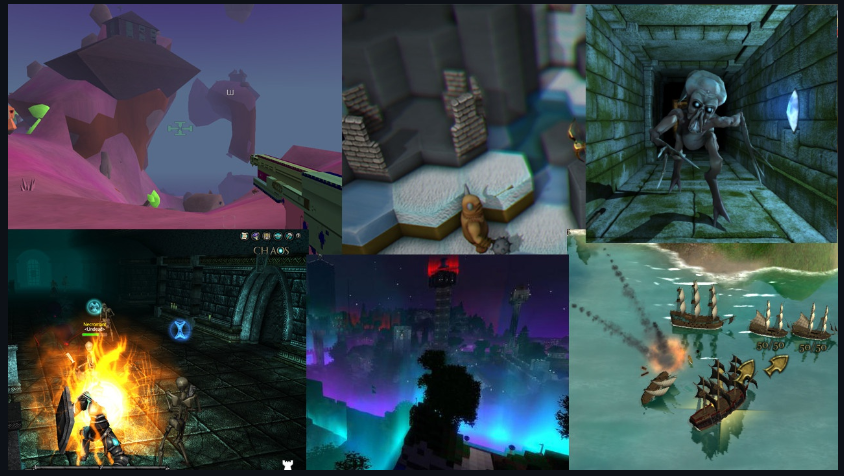
jMonkeyEngine is a 3-D game engine for adventurous Java developers. It’s open-source, cross-platform, and cutting-edge. v3.6.1 is the latest stable version of the engine.

13- melonJS
melonJS 2 is a modern update to the melonJS game engine, first released in 2011. Rebuilt entirely using ES6 classes and inheritance, it offers faster build times with esbuild and supports tree-shaking for optimized performance.
As an open-source project under the MIT license, melonJS is actively maintained by the team at AltByte, Singapore. Developers should note that version 10.0+ introduces significant changes, breaking backward compatibility with older versions.
14- Stride
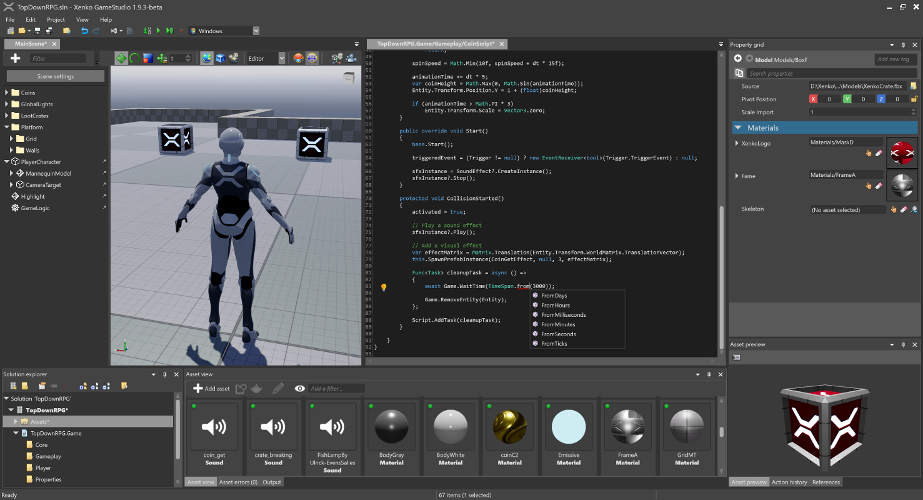
Stride is an open-source C# game engine for realistic rendering and VR. The engine is highly modular and aims at giving game makers more flexibility in their development. Stride comes with an editor that allows you to create and manage the content of your games or applications visually and intuitively.
15- KorGE
KorGE is an open-source modern Multiplatform Game Engine for Kotlin.
Features
- Cross-Platform Support – Build games for Windows, macOS, Linux, Android, iOS, and Web.
- 2D and 3D Rendering – Supports both 2D and experimental 3D features.
- Kotlin-Based – Fully written in Kotlin, ideal for Kotlin developers.
- Built-in UI Components – Offers widgets and UI tools for game interfaces.
- Multimedia Support – Handles images, sounds, and video files with ease.
- Physics Engine Integration – Includes physics for realistic motion.
- Hot Reloading – Test changes instantly without restarting.
- Modular Architecture – Add or remove features as needed.
- Open Source – Licensed under MIT, allowing free use and contributions.
- Active Community – Backed by an engaged developer community with ongoing updates.
16- Ebitengine
Ebitengine (formerly known as Ebiten) is an open source game engine for the Go programming language. Ebitengine's simple API allows you to quickly and easily develop 2D games that can be deployed across multiple platforms.
17- Bevy
Bevy is a refreshingly simple data-driven game engine built in Rust. It is free and open-source forever!
18- Starling Framework
Starling Framework is an open-source 2D game engine built for creating high-performance, cross-platform games and interactive applications.
Using Stage3D technology, it delivers hardware-accelerated graphics, making it ideal for smooth animations and visually rich content. Starling supports mobile, web, and desktop platforms, allowing developers to build once and deploy anywhere.
With its intuitive API and active community, Starling is perfect for developers seeking a lightweight, efficient solution for 2D game development.
It is used to create dozens of powerful games, including the famous Angry Birds.
19- GamePlay (2D/ 3D)
GamePlay is an open-source, cross-platform, C++ game framework/engine for creating 2D/3D mobile and desktop games. (Not updated)
